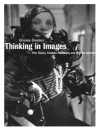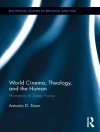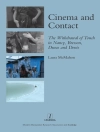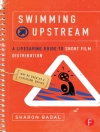Corona as a staged instrument of oppression, secretly kept vaccination deaths or politicians drinking children’s blood: at the latest since the outbreak of the Covid 19 pandemic, conspiracy ideologies are booming and harm social peace and democratic will formation through their dogmatism. So-called conspiracy theories generate systematic distrust of legitimate political institutions and can contribute to social polarization, dangerous populism and extremist escalation. Conspiracy ideologies have always been a topic in movies and television series, as they have always dealt with the relationship between reality and illusion, truth and fiction, reality and dream, sense and madness through their cinematic means. Series and films not only serve as a discursive space for social self-understanding, but also, through their complex narratives, constellations of characters and aesthetics, offer catchy explanations for the emergence and spread of conspiracy narratives. At the same time, theymake suggestions, some of them astonishingly concrete, for dealing with such collective delusions. What can we learn from the fictional worlds of series and films for dealing with this very real contemporary phenomenon?
Tabla de materias
On the introduction to an expendable research subject.- Conspiracy in the spy film.- Media form and political effect. Veit Harlan’s Jud Süß as melodrama.- National Socialist conspiracy narratives: Veit Harlan’s feature film Jud Süß.- The motif of whistleblowing and its functionalization in Vaxxed – From Cover-Up to Catastrophe- The loneliness of the conspiracy believer in pandemic seriesusing the examples of Sløborn and Y – The Last Man.- Dark Times in Winden: être-au-monde in the illogic of late capitalism.- The Ides of March.On conspiracies and counter-conspiracies in histotainment.- ‘In the web of conspiracy myths’ – An exemplary analysis of three documentaries on the subject of conspiracy myths as a learning medium in school.
Sobre el autor
Denis Newiak (Dr. phil.) is a research associate at the Chair of Applied Media Sciences at the Brandenburg University of Technology, Germany. He studied Media Studies at the University of Potsdam and Film Studies at the Freie Universität of Berlin. He conducted research at the Library of Congress in Washington, DC and in Sapporo, Japan. His research focuses in the following areas: aesthetics and narratives of loneliness in film and television, macro- and microsocial functions of serial television entertainment, disruptive events in science fiction movies and TV shows.
Anastasia Schnitzer (M. Sc.) is a graduate assistant at the Department of Communication Studies and Media Research DCM at the University of Fribourg (Switzerland). She is pursuing her Ph D on the influence of character portrayals and the quality of mediated intergroup interaction in entertainment media on expectation, stereotyping and stigma towards perceived outgroups. Her broader research interests includeintervention research and empathy in health communication.












